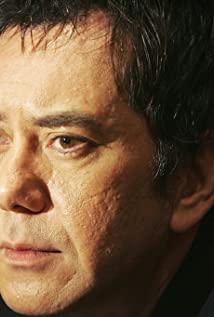First of all, I have heard the name "Infernal Affairs" for many years, but I still don't understand the real meaning. After checking it, I learned that the so-called Infernal Affairs is a Buddhist term, referring to the Infernal Hell. Among the eight hells in the stories of Buddhist scriptures, The hardest one. In this movie, you can really feel the two protagonists struggling in the so-called endless hell, trying to tear off the mask of disguise and find their true self.
I have to mention that the cast of "Infernal Affairs" is simply a super luxurious package. Liang Chaowei and Andy Lau joined forces, and the other supporting roles are also eye-catching. Chen Yongren, played by Tony Leung, and Liu Jianming, played by Andy Lau, two people who gave up their identities and lived in completely opposite environments, started a game between the underworld and the police.
Personally, I think "Infernal Affairs"'s character shaping is its most successful and my favorite. As a policeman, Chen Yongren has a beard, is sloppy and dressed in sloppy clothes, and even has serious psychological problems that need to be treated; while Liu Jianming, a gangster, wears suits and leather shoes every day, shuttles through the bright office, and talks with his boss. Get along well and climb up little by little. If you give up the "identity" and avoid talking about it, everything seems so natural. It is precisely with the contradiction in "identity" that the protagonist's struggle in destiny occurs.
Speaking of Chen Yongren, who is an undercover police officer, then the role that has to be mentioned is his boss Huang Zhicheng. Huang Zhicheng is a conscientious police officer and a key figure in this undercover scheme. The relationship between him and Chen Yongren is very deep, and he did not forget to give Chen Yongren a birthday present when the two met. And there is a small detail in the movie. When Chen Yongren received the gift, he said, "I never wear a watch." Later, when Chen Yongren was receiving treatment, he used the watch sent by Huang Zhicheng to see time. This detail is enough to explain Huang Zhicheng's position in Chen Yongren's heart. However, it was such a senior who had an important influence on him, but he took risks in order to protect himself, and finally fell to his death. Just as Chen Yongren circled back to the main entrance, Huang Zhicheng fell from the roof and hit the car behind Chen Yongren, covered in blood. In this scene, Liang Chaowei's expression of being almost desperate and helpless but trying to endure the grief in his heart gave me an incomparable shock. But at that time, a line from Huang Zhicheng sounded in my mind - only I know your identity in Hong Kong. If even the identity of the policeman cannot be recovered, what is left of Chen Yongren? On the other hand, Liu Jianming has been Han Chen's inner ghost in the police for many years, but his inner pain and struggle are no less than that of Chen Yongren. In Liu Jianming's side, there is a plot that is very intriguing. Liu Jianming's girlfriend is a cheerful and generous writer. When she shared her novel idea with Liu Jianming, the following dialogue appeared: "I can write that the hero has twenty-eight kinds of personalities." "You mean me?" "Are you serious."
"Hey, think about it, a person has twenty-eight kinds of personalities, that is to say, every morning he wakes up and exercises with himself, so that he even forgets his true character. , isn't it scary?" "It's scary."
This dialogue shows Liu Jianming's real situation and Chen Yongren's real situation in an unconscious way of Liu Jianming's girlfriend. Two people who have given up their original identities, every day when they open their eyes, they have to act on themselves, and they are even about to forget their real self. Thinking about it carefully, it is not an exaggeration to call it horror. Among the two, Liu Jianming's psychology is even more surprising. One of the interesting things that "Infernal Affairs" does is that it does not completely divide the characters into simple rules such as "good and evil" and "good and bad", which more truly shows the complexity of human nature. Although Liu Jianming was Han Chen's subordinate, he performed well in the police station and was highly appreciated by his superiors. And when Liu Jianming was young (played by Edison Chen), looking at Chen Yongren who was kicked out of the police station, he said in a low voice, "I want to change with him." It can be seen that Liu Jianming wanted to get rid of this kind of life, it started very early. of. After a series of games with Chen Yongren and struggling with his own heart, Liu Jianming chose to be a good person. He got rid of Han Chen, deleted Chen Yongren's file, but kept a backup, told him the password of his girlfriend, and wanted to negotiate with Chen Yongren on this condition. The two faced off on the rooftop, and Chen Yongren did not choose to believe him. Unexpectedly, the big B (played by Lin Jiadong) in the same group was also an undercover agent sent by Han Chen to the police station. After processing the recording as evidence, he killed Chen Yongren, but was finally killed by Liu Jianming. In fact, the ending was unexpected. According to our accustomed thinking, the final outcome should be that Chen Yongren's identity will be restored, and he will continue to work hard as a good policeman from then on, while Liu Jianming will turn himself in and live a new life. But if the ending is really like this, then it does not meet the meaning of "Infernal Affairs". At the end of the movie, a line of words is typed: Buddha said: Those who suffer from infinity will never die, and longevity is a great calamity in the eternal hell.
I still can't fully understand the true meaning of this sentence, but in the so-called endless hell, there is no death, only endless torture. Liu Jianming, who survived in the end, although he has preserved himself and all the factors that would threaten him have been eliminated one by one, it is not difficult to imagine that even if he is alive, he will still suffer endless torture. On the contrary, for Chen Yongren, death is not a kind of relief.
There is no absolute good or absolute evil in Infernal Affairs. There is a game between good and evil, a struggle between good and evil. You and I have actually faced such a situation. Here's a quote from the movie at the end:
He was a good man and did wrong again.
View more about Infernal Affairs reviews











